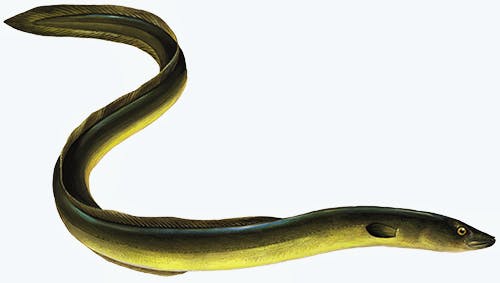All feed formulas developed by Aller Aqua at the Aller Aqua Research Centre follow these requirements to ensure proper growth and health:
High-Protein Diet: Eels require a protein-rich diet (45-55%) for optimal growth. Fish meal and fish oil have traditionally been the main protein sources, though plant-based alternatives are being explored.
Fat Content: Eels need 10-25% fat in their diet to support energy demands and maintain flesh quality.
Essential Nutrients: Vitamins (A, D, and B-complex) and minerals (phosphorus, calcium, and selenium) are crucial for healthy development.
Live Feed in Early Stages: Young eels (glass eels) often require live or fresh feed before transitioning to formulated pellets.
